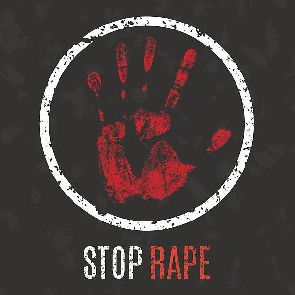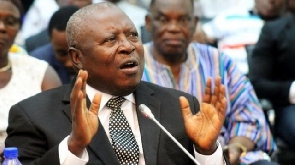Although there is now little attention on violence and its related matters, violence especially sexual abuse is still part of our world system. Instances such as men abusing their partners, others inflicting emotional and mental torture to those vulnerable especially in countries where patriarchy is dominant.
In Ghana, for that matter, women and girls have suffered a lot of violence and injustice which mar their developmental aspirations. Cases of this nature cannot be addressed in the institutions that are responsible for protecting the right and privileges of these vulnerable people because these institutions are weak, porous, lack the necessary resources to roll out their duties, and not independent as written on paper.
Majority of women and girls living in countries have directly and indirectly experienced violence and injustice and the commonest one is sexual violence/abuse.
Sexual violence /Abuse victims endure physical, mental and emotional trauma. This act takes a longer time for the victims to adapt and adjust to a new way of living. Processes in addressing this issue can be overwhelming due to the fact that the healing process takes times and normally this abuse vary from person to person due to their responses to variables such as stress, age, social relationship and the intensity of the abuse.
Sexual violence/abuse in the case of rape which has been up and rising in recent times has serious health implications such as increasing cost of health care for the abusers, weak systems, inability to work hence slowing productivity, developing mental health problems, death and having prolonged issues with men due to the picture of the act in mind.
In recent times myriads of rape cases have been pictured in West Africa and particularly in Ghana of the telling effects on the victims are not something to write home about. Not ago, a rapist of young age died, some got bleeding during and after the scenes and others have been hospitalised due to the disgusting nature of the act.
Again, from the sociological perspective, victims of sexual abuse are more likely to experience trouble raising their children thus they become aggressive, hostile, development of hatred towards the opposite gender and being insensitive to care and love. This affects the primary socialisation; family, which is the first agent of socialisation.
This, in turn, affects the other institutions as the individual grows up, in some cases. And to extreme cases, society's disequilibrium as the functionalists talk about.
In another dimension, sexual violence/abuse has psychological consequences on the victims; i.e they are more exposed to effectuating depression, anxiety, resorting to substance abuse and to some extent, committing suicide!
In the foregoing dynamics, sexual violence is said to have eroded the social fabric of society by dismantling family ties and causing ripple effects on many within the family. Again the victims of the abuse must do well to open up to their family members especially their significant others and the family members should not sweep the abuse of the victim under carpet in the sense that is intimate was between a prominent person (haves) and the victim.
Considering such implications, the best way to mitigate sexual violence is through education in the form of awareness creation to all (men and wen), strengthen and regulating our social institutions, outlining a stricter law enforcement policies to deal with people who fall foul to these cases, condemning people speaking for such act to happen in the society and lastly, exhibiting good leadership in addressing issues of violence that comes to the front desk of the institutions responsible.
Sexual violence (rape), not only physical abuse, but all the abuses must be addressed properly in order to make it a thing of the past because it affects almost everyone - directly or indirectly. We cannot blame who does the act or enjoys it but we can blame the structural setting if and only if our sexual orientations and orientations of gender is looked at.
#stop the rape
#stop sexual abuse
Opinions of Monday, 13 July 2020
Columnist: Opare Enoch



















